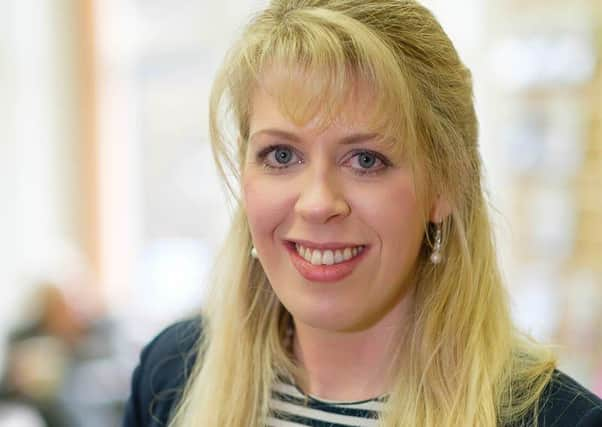Sheffield doctor puts career on ice to probe pregnancy disorder


So-called molar pregnancies occur when a lump of abnormal cells grow in the womb in place of a healthy foetus.
The condition affects around one in 600 births and usually results in the loss of a pregnancy, but may go unnoticed until an ultrasound scan three months into the term, or during the tests carried out after a miscarriage.
Advertisement
Hide AdAdvertisement
Hide AdThe disorder is known medically as Gestational Trophoblastic Disease, or GTD. But around one patient in 10 will go on to develop a more serious and cancerous form – GTN – which requires chemotherapy treatment.
Dr Victoria Parker, an obstetrics and gynaecology registrar, said she had been inspired to devote her time to researching the condition for a PhD at Sheffield University, after caring for several patients affected by it.
Sheffield’s Weston Park Cancer Centre, where she is based, is one of only two specialist treatment units in the country which diagnoses and treats the condition. Dr Parker said her goal was to improve the way in which doctors managed the disorder and help ease the psychological impact of the diagnosis.
She said: “GTD can take several weeks to diagnose, while it can take months to diagnose GTN.
Advertisement
Hide AdAdvertisement
Hide Ad“It’s devastating enough for someone to be told they have to have their pregnancy removed, but imagine the psychological effect of then being told that you have a condition you’ve never heard of and that it might be the cancerous form. The effect of all those blows is devastating.
“I aim to find a blood test which could help to confidently diagnose the condition at the time of the patient’s first ultrasound scan.”
She added that although GTN had a cure rate of 99 per cent, many patients found the diagnosis to be “very isolating”.
She is working with two women to set up support groups to increase the awareness of the complication.
Advertisement
Hide AdAdvertisement
Hide Ad“Many patients are very anxious to meet other women who can offer them support through the diagnostic, monitoring or treatment process,” she said.
Donna Ricketts, from Rotherham, who was diagnosed with GTD two months after having a miscarriage in December 2018, is helping set up one of the groups.
“I was already grieving for my miscarriage when I found out my pregnancy was molar, and the possibility that I could be diagnosed with cancer,” said Ms Ricketts, who is 35.
“Having to keep explaining to people what was happening was really upsetting.”
Advertisement
Hide AdAdvertisement
Hide AdDanielle Jones, from North Wales, who is among only one in 50,000 women to have given birth to a healthy baby prior to a diagnosis of GTN, said that despite online support groups in the US, it was “difficult to make sense of what I was going through”.
Dr Parker said: “Danielle and Donna founded these groups during incredibly vulnerable moments in their lives.”